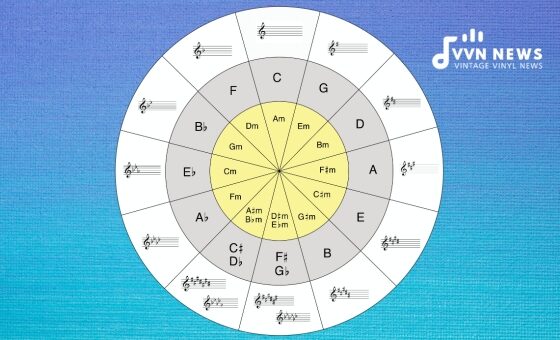There’s no denying that, at first glance, being a pop star appears to be a dream come true.
To some, it conjures feelings of being constantly adored by millions, luxury jet travels, and performing shows that thousands flock to see. As with any job, pop stardom has its downsides – and quite a few.
From infrequent privacy to demanding schedules and pressures to maintain certain appearances, the life of a global superstar comes with challenges most people don’t consider. I’ve compiled the top 15 reasons being a pop star sucks.
Admit it or not, we’ve all fancied ourselves on stage at least once at an arena full of screaming fans.
And why not? The glitz and glamour associated with pop stardom seem very appealing from the outside. However, this allure can often mask the darker truths behind what it truly means to belong to this elite group.
Before concluding about such a life from an outsider’s point of view, strap in as I draw back the curtain on the less glamorous aspects of fame and reveal why being a pop star isn’t always everything rocked up to be.
Top 15 Reasons Being a Pop Star Sucks
Being a pop star might seem like a fairy-tale dream, but the reality is often a far cry from what you see on the glossy pages of music magazines or high-energy music videos.
The pressures and challenges that coincide with this elevated status are certainly not for the faint-hearted.
Here are 15 reasons why being a pop star might not be as desirable.
1. Complexity Gap
When you’re a pop star, your music is often held to the standards of the mainstream audience.
This essentially translates to a gaping complexity gap that musicians must straddle. Intricate lyrical phrasings and complicated melodies are often not deemed ‘pop’ enough.
Brevity is crucial, and most pop songs clock at around three minutes, which can limit an artist’s creative scope.
Complex song structures or thought-provoking lyrics are generally avoided as they could alienate some listeners.
Subsequently, catchy hooks and simple tunes – often engineered for mass appeal – take precedence, reducing the opportunity for the artist to showcase their actual skills.
Moreover, this complexity gap also impacts the diversity in music. Different genres like jazz or classical music with more complex musical structures do not get mainstream attention because fitting into the pop mold becomes paramount.
Essentially, being a pop star often means diluting your music to its simplest form to ensure it garners maximum appeal – an unhappy compromise for many artists.
2. Shallow Lyrics
Pop music is renowned for its catchy and straightforward lyrics. This simplicity often tips over the edge into shallow territory.
The reason is a mix of market demand and industry pressures. In today’s fast-paced world, songs that adhere to simple themes like love, heartbreak, or partying are more commercially successful.
These themes make for easy listening – they don’t demand much thought or deep understanding.
But the downside is palpable: An abundance of shallow lyrics. Pop stars may want to explore more profound subjects in their music but might be handcuffed by industry expectations.
This can lead to artistic dissatisfaction and ultimately hinder creativity – making it a significant drawback of pop stardom.
3. The Pop Formula
The Pop Formula is a primary reason a pop star can suck. This formula refers to the idea that all successful pop songs tend to follow a specific structure or pattern.
As a pop star, you are expected to produce songs that often stick rigidly to this formula to have commercial success.
This leaves little room for experimentation or creativity. The constant pressure to hit the ‘magical’ three-minute mark, create catchy choruses, and have accessible lyrics can be incredibly limiting for an artist longing for originality.
Here’s what the essential Pop Formula looks like:
- Verse: This sets the stage and introduces the narrative.
- Chorus: Here comes the catchy part that needs to be easy to remember by listeners.
- Bridge: This usually changes the rhythm or melody before returning to another chorus.
This strict adherence often prevents artists from fully expressing their creative prowess, making pop stardom less glamorous.
4. Greedy Labels
Take a moment to envision the ideal artist-label relationship. I bet your imagination paints a pretty picture of shared profits and mutual respect.
In reality, the story is often far from this rose-tinted view. Many record labels, unfortunately, prioritize financial gains over artists’ well-being and creativity.
Labels will push to squeeze every last dollar out of an artist – regardless of the consequence to their mental health or personal life.
The terms of contracts are typically carefully calculated in favor of the label. To exemplify, it’s not uncommon to find artists being pressured into producing music they don’t connect with just because it’s more commercially viable.
Add to this the dreaded “360 deals,” which claim a percentage from record sales and merchandise and touring revenue. Trust me; this can quickly dampen any star’s glittery shine.
Also Read: 30 Crazy Science-Supported Facts About Music [2025 Latest]
5. Tech Impact
Being a pop star in today’s age means dealing with the blessing and curse of technology. Yes, your music is available at the swipe of a finger across a screen.
This easy access comes at a significant cost – extreme competition and a constant need to stay ‘relevant’.
Moreover, much of your private life becomes public as fans uncover details about you through social media.
But that’s not all – the digital age has revolutionized music production: Auto-tune, voice modulation apps, and synthetic beats all make up today’s pop music landscape.
While these tools are genuinely artistic innovations, their overuse can detract from raw talent and dampen creativity.
This modern soundscape sometimes forces artists to favor technology over authentic musical expression.
In other words, you can’t just be a good singer or songwriter; you must be tech-savvy and consistently offer impeccable content to remain relevant – causing immense pressure among pop stars.
6. No Live Feel
One of my biggest gripes with being a pop star is the lack of genuine live performance experiences.
Today, the music industry’s reliance on auto-tune, lip sync, and other technologies has watered down the authenticity of live performances.
When I listen to music, I want to feel the raw passion and energy that only a real-time performance can provide.
Many pop artists rely heavily on playback during live shows, which detracts from that magical feeling.
It’s almost like serving someone frozen food at a five-star restaurant – it just lacks heart and authenticity.
7. Profit Over Art
This is not just about record labels looking to milk every penny they can out of artists but also about how this drive for profit negatively influences their creativity.
The constant pressure for increased commercial success pushes artists into creating music that can sell over what genuinely represents their artistic vision or what they believe in musically.
This undeniable preoccupation with profit often forces pop stars to focus on quantity over quality, releasing track after track while compromising on genuine creativity.
Sure, it pays bills, but at what cost? We are artistically stifled as we must constantly cater to trending sounds and lyrical content that we might not necessarily agree with. The true essence of making music is lost somewhere along the way.
8. Control Struggles
Being a pop star often means giving up much control over your career.
Every move, every song, and every costume is meticulously strategized and executed by a team of people who are more vested in making profits than enriching your artistic abilities.
The record label you’re signed to typically has the final say on album track listings, sometimes even dictating style changes that align more with market trends rather than your creative instincts.
Moreover, many celebrities have spoken about their difficulties when expressing their perspectives as artists because their control is either fully or partially given away to others.
This can lead to alienation from their work and make them wonder if they’re just puppets being wielded by the industry for profit.
9. Looks Over Talent
Another less glamorous side of being a pop star is the constant pressure to look perfect. Talent alone often isn’t enough; an increasingly image-obsessed culture demands that celebrities maintain physically unrealistic beauty standards.
Weight gain, wrinkles, or gray hairs quickly become tabloid fodder. Some stars even face extreme scrutiny if they appear ‘different’—gaining weight, aging naturally, or changing hairstyle—with an alarming rise in speculation over supposed cosmetic surgeries rather than appraising for their vocal capabilities or songwriting talents.
The industry firmly believes in the adage “Image is everything,” belittling self-expression and artistic talent at times for aesthetic packaging.
No matter how talented you might be as an artist, if your ‘look’ doesn’t fit into a constrictive mold or appeal to mass culture trends—you’ll probably have a more challenging time breaking into mainstream popularity and maintaining it.
10. Generic Songs
The quantity-over-quality mentality pervades the music industry and often produces “generic songs.”
These are tracks that you can’t distinguish from each other with their similar chord progressions, themes, and even lyrics.
The industry’s drive for radio-friendly hits the listeners can quickly resonate with often replaces any distinctive and innovative songwriting.
Unique individuality could often be lost in an age where streaming platforms reward volume.
A throwback to past times when songs had their distinctive style and musical identity seems to be a luxury we cannot afford in today’s pop world.
11. Uninspiring Melodies
Flowing from formulaic songwriting is yet another pitfall- uninspiring melodies. Many megahits have predictable melodies that lack dynamic range, failing to create those goosebump-provoking moments we crave in good music.
As a fan of melody-driven music, this reality leaves me feeling underwhelmed and yearning for more as I seek out new music.
Musical exploration seems to have taken the backseat while easy-to-consume tunes drive the industry.
Ultimately, it’s crucial to recognize these trends when questioning why today’s pop music might not resonate or fulfill as it once did.
The effects of generic songs and uninspiring melodies are subtle but can significantly impact our shared cultural soundtrack if left unchecked.
12. Overproduction Woes
Overproduction in pop music is a widespread concern. As much as polished tracks might appeal to our ears, too much sonic editing distorts a pop star’s natural talent and all too often outshines their accurate vocals.
The dense layering of sounds, auto-tuning, and other digital enhancements turn what could be a raw musical articulation into something entirely synthetic.
It’s a double-edged sword- on one hand, it can make any track sound like a big hit. But on the other hand, it marginalizes the artist’s genuine creativity.
Also Read: 25 Best 80’s Female Singers [Remembering The Icons Of Pop Music]
13. Few Real Instruments
It’s hard not to notice that most pop songs today lack authentic instrumental sound, frequently relying on computerized beats and synthesizers.
While these tools have given birth to some fantastic new music genres, they also tend to downplay the true musicianship that involves playing actual instruments.
The quick and repetitive beats replicated on software undermine the intrinsic beauty and uniqueness that come from an authentic instrument’s strings or keys.
The sacrifice made here for convenience or trend can lead to homogeneity in pop music, diluting its vibrancy and diversity.
Ultimately, this stifles progressive growth in this musical domain.
14. Industry Pressure
She is being a pop star subjects one to immense industry-induced pressures.
Constant scrutiny from record labels and management to consistently deliver chart-topping hits can make any artist’s life extremely stress-inducing.
Also, the not-so-subtle demand to maintain a relatable public image can cast insurmountable pressure on these individuals.
They are often pushed into compromising their personal lives and health to maintain a particular look or image.
This constant stress and pressure only intensify under the public’s probing gaze.
Moreover, releasing albums or singles regularly becomes more of an obligation and less about pursuing passionate music creation.
Meeting these demands often leads to burnout, hindering the creative process significantly.
15. Artistic Loss
A significant downside to being a pop star is what I believe is a profound compromise on artistic freedom.
The sad truth is that most pop tunes that top charts do not usually result from an artist’s undiluted creativity but from meticulously researched products catering to mainstream appeal.
Unfortunately, this rules out real chances for artists to fully explore unconventional ideas or styles that may not align well with mainstream tastes – hence leading to considerable artistic loss.
Continually adhering to what appeals commercially can gradually stifle a musician’s desire for creative expression, eventually making their music lose its original charm and sparkle over time.
Despite the incredible fame and fortune it offers, pop stardom isn’t necessarily shiny behind the scenes – neither is it as fulfilling as one may believe.
Also Read: 10 Famous Satanic Songs To Listen In 2025 [Notorious Songs]
FAQs About Pop Star
Why is it challenging to be a Pop Star?
Being a pop star isn’t just glitz and glamour. It involves handling pressure, maintaining images, and constantly creating art that pleases both the audience and the industry.
Does fame make the struggles of a Pop Star easier to bear?
Fame often brings more scrutiny and stress. It increases public expectation, which can be overwhelming, making the struggles prevalent for a pop star harder to bear.
What is the hardest part about being a pop star?
Most pop stars find managing their persona, off-stage life, creative process, industry pressures, and maintaining sanity and health the most challenging.
Do all pop stars feel unsatisfied with their profession?
No, dissatisfaction is not universal amongst all pop stars. Some artists thrive under pressure, using their struggles as motivation. Everyone’s experience is unique.
Can pop stars remain true to their artistic vision while dealing with industry pressures?
It’s certainly a challenge. Maintaining one’s individuality and creativity while satisfying the industry’s demands for commercial success can be incredibly difficult and often leads to an internal tussle of prioritizing art or fame.
Conclusion
While being a pop star can serve glitz, glamour, and worldwide influence on a silver platter, there are countless significant drawbacks. The music industry doesn’t always say yes to individual artistry.
Factors like unrealistic societal norms, pressures from labels, lack of personal freedom or privacy, and the lure of profit over passion can turn what seemed a dream into a less desirable reality.
This serves as a reminder that behind the glossy images on magazine covers and music videos hides an industry fraught with trials.
Remember this the next time you’re singing along to your favorite pop star.








